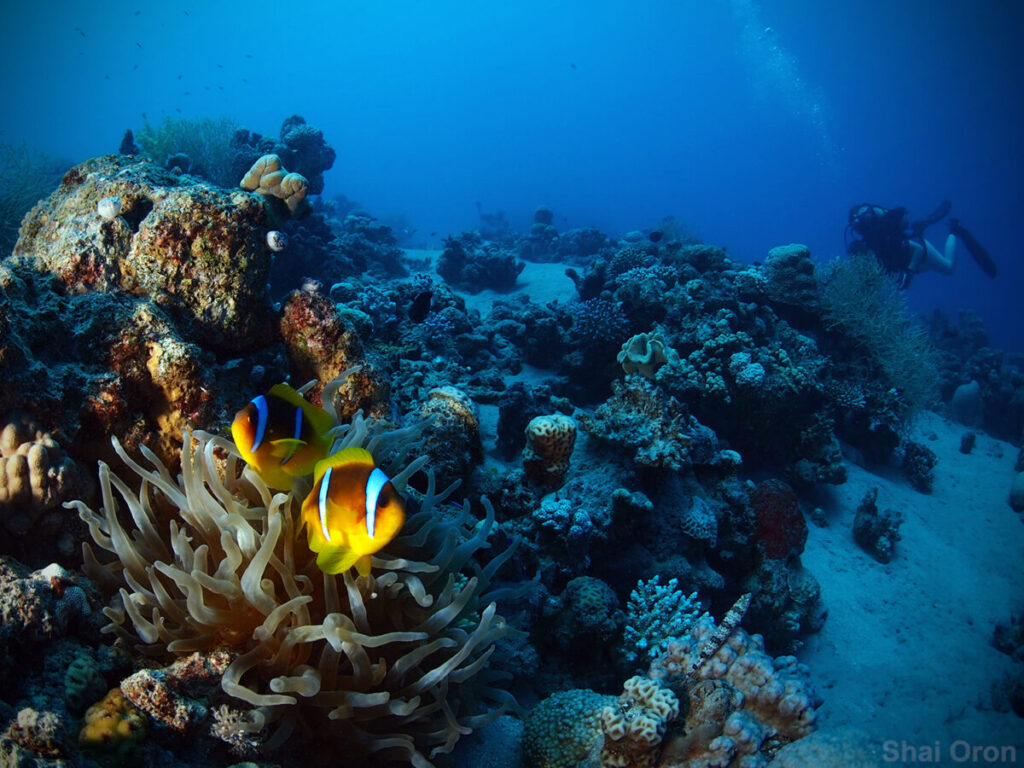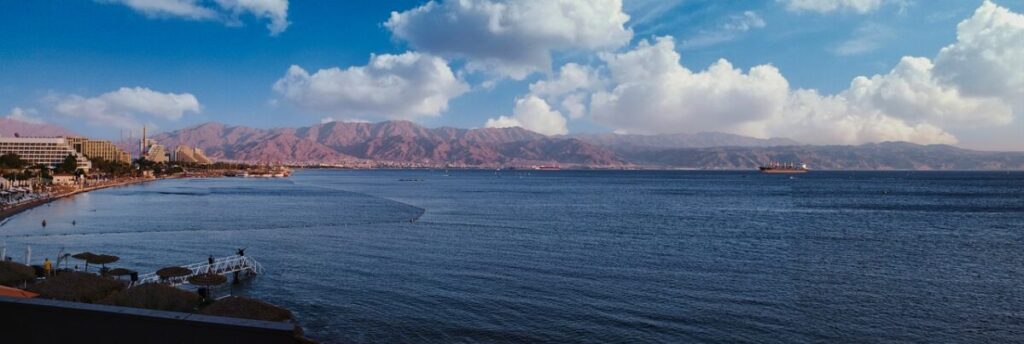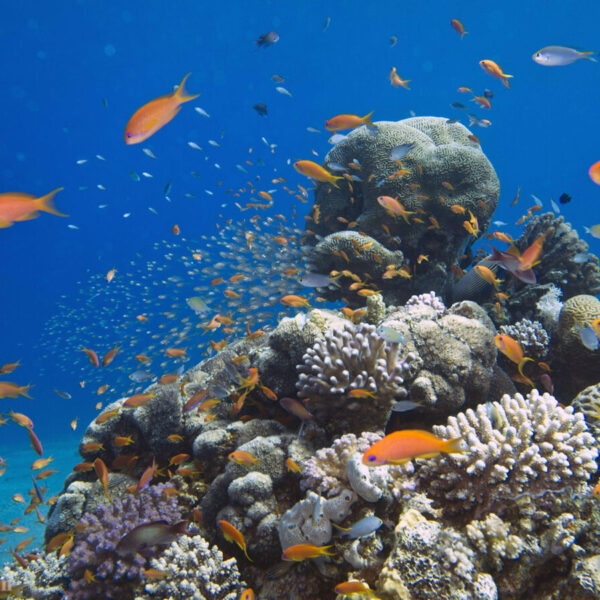The Gulf of Eilat, at the northern tip of the Red Sea, boasts an exceptional marine ecosystem. Despite the increase in sea temperature due to global warming, the coral reefs in the gulf are remarkably resilient to bleaching. An unprecedented initiative, led by the marine program of the Society for the Protection of Nature in Israel (SPNI), aims to preserve this unique environment through nature reserves, sustainable practices, integration of urban planning, and ecological policy measures.
Israel has about 12 kilometers of coastline along the Gulf and approximately 35 square kilometers of territorial waters. It is a compact marine area, located at the northern end of one of the world's richest marine biodiversity regions. However, current urban planning and conservation plans fail to ensure its protection, exacerbating ecological damage. Shallow reef and seagrass habitats are located just offshore, thus highly exposed to urban development.
The Eilat coral reef, the only survivor by 2050?
Around 90 to 99% of the planet's coral reefs are at risk of disappearing in the coming decades due to climate change. However, the Eilat reef, unique in its genetics, is expected to be the only one to survive. This is despite a 4 to 5-degree increase in water temperature.
"Unfortunately, the vast majority of the world's corals are destined to become scarce by 2050, and we are already witnessing their bleaching. However, those in Eilat are very resilient. Due to their special genotypes, tolerant to heat, nourished by the warm surface waters of the southern Red Sea, they are spared from bleaching, which is a phenomenon of decay leading to death," says Dr. Shai Oron, a marine ecologist at the SPNI.
If the coral reef of Eilat is of great importance, especially for tourism, its preservation is crucial for maintaining the stability of natural reserves in the region.
"These are corals that have a global impact, not only for the region of Israel in terms of conservation. The whole region is connected: if something happens in Aqaba, Egypt, or Saudi Arabia, it can have consequences on the Eilat reef. Therefore, we have a huge responsibility to protect these natural reserves," explains Alon Rothschild, project director and biodiversity policy coordinator at SPNI.

Endangered natural reserves
The reef is subject to multiple local threats, including debris, fishing activities, and coastal infrastructure development. These unsustainable practices pose a significant threat to local livelihoods as they jeopardize the potential of these reefs as a future genetic resource for the conservation of all coral reefs.
"The Gulf of Eilat faces significant challenges, as numerous activities take place in a confined area: fishing, tourism, oil transportation, construction, and commerce," says Alon. The SPNI raises an alarm and points out the lack of systematic action for marine protection, the lack of awareness, and the absence of a framework for regional cooperation in marine protection.
This compact marine area ranks among the top twenty richest areas in the world in terms of marine biodiversity. In the long run, the SPNI Initiative aims, among other things, for the coral reefs of the Red Sea to be a financial source for a rapidly growing regional population of over 28 million people and for annual tourism revenues to exceed $12 billion for the region.
Concrete solutions
To address the threats, the actions proposed by the SPNI initiative focus on advocating for the creation of marine protected areas and seagrass beds, in collaboration with the Nature and Parks Authority. This involves increasing the marine protected area from 5% to 30% of the territorial waters' surface area.
The pilot program also aims to reduce light pollution. The Eilat reef, located near the shore, is sensitive to significant terrestrial influences, posing risks to the health of corals. The main success criteria include reducing light pollution by 90% within a 200-meter radius from the shoreline and cutting energy consumption for lighting in half. By adopting energy-efficient practices and implementing light pollution prevention strategies, facilitated by city planning and infrastructure agencies.
Furthermore, Eilat has recently been selected to participate in the EU's new mission: 100 Climate-Neutral Cities by 2030. This designation presents an opportunity to expand SPINI's pilot program to broader climate neutrality goals.

